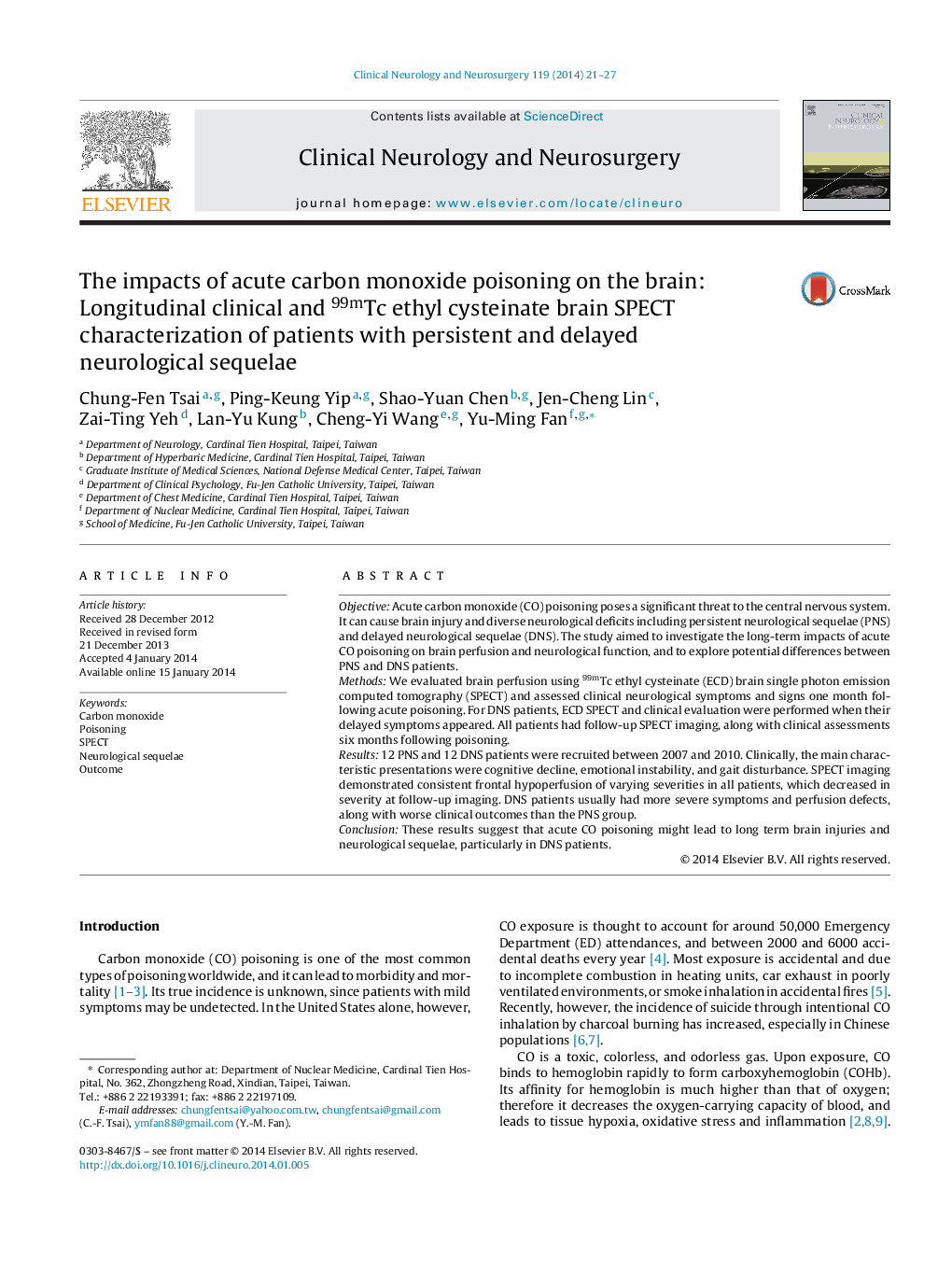| Article ID | Journal | Published Year | Pages | File Type |
|---|---|---|---|---|
| 6006482 | Clinical Neurology and Neurosurgery | 2014 | 7 Pages |
ObjectiveAcute carbon monoxide (CO) poisoning poses a significant threat to the central nervous system. It can cause brain injury and diverse neurological deficits including persistent neurological sequelae (PNS) and delayed neurological sequelae (DNS). The study aimed to investigate the long-term impacts of acute CO poisoning on brain perfusion and neurological function, and to explore potential differences between PNS and DNS patients.MethodsWe evaluated brain perfusion using 99mTc ethyl cysteinate (ECD) brain single photon emission computed tomography (SPECT) and assessed clinical neurological symptoms and signs one month following acute poisoning. For DNS patients, ECD SPECT and clinical evaluation were performed when their delayed symptoms appeared. All patients had follow-up SPECT imaging, along with clinical assessments six months following poisoning.Results12 PNS and 12 DNS patients were recruited between 2007 and 2010. Clinically, the main characteristic presentations were cognitive decline, emotional instability, and gait disturbance. SPECT imaging demonstrated consistent frontal hypoperfusion of varying severities in all patients, which decreased in severity at follow-up imaging. DNS patients usually had more severe symptoms and perfusion defects, along with worse clinical outcomes than the PNS group.ConclusionThese results suggest that acute CO poisoning might lead to long term brain injuries and neurological sequelae, particularly in DNS patients.
